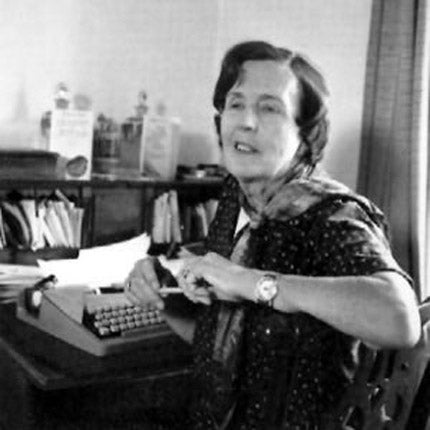Invisible Ink: No 68 - Barbara Pym

Your support helps us to tell the story
From reproductive rights to climate change to Big Tech, The Independent is on the ground when the story is developing. Whether it's investigating the financials of Elon Musk's pro-Trump PAC or producing our latest documentary, 'The A Word', which shines a light on the American women fighting for reproductive rights, we know how important it is to parse out the facts from the messaging.
At such a critical moment in US history, we need reporters on the ground. Your donation allows us to keep sending journalists to speak to both sides of the story.
The Independent is trusted by Americans across the entire political spectrum. And unlike many other quality news outlets, we choose not to lock Americans out of our reporting and analysis with paywalls. We believe quality journalism should be available to everyone, paid for by those who can afford it.
Your support makes all the difference.Few careers are so easily destroyed by a fall from fashion. Some writers return to popularity, but none in such a spectacular manner as Barbara Pym, a quintessentially English novelist whose 12 miniaturist novels can now be described as both popular and timeless.
Pym was born in Oswestry, Shropshire, one year before the Great War. She attempted her first book, Young Men in Fancy Dress, at 16 and her second, Some Tame Gazelle, at 22, periodically submitting it to publishers who always turned it down. She wrote about characters she knew and understood. Her mother was a church organist, so vicars and curates inevitably appeared in her books. She and her sister Hilary featured in the second, projected into the future as spinsters. And anthropologists tended to crop up, because of her years spent working at London's International African Institute.
By the time another World War broke out, she had still not been published. After, she and Hilary moved to a flat in Pimlico, and she wrote stories for women's magazines without any real success.
Then, in 1950, Jonathan Cape published a revised version of Some Tame Gazelle, finally launching her career. Pym's first six books established her as a unique voice. Her plots left faint impressions but her style allowed her to explore the lives of unassuming, genteel characters with clarity and originality. She found her voice and her audience.
In 1963, disaster struck. An Unsuitable Attachment was returned without a contract; in the era of the Beatles, she had fallen out of step with the times. Shattered by the rejection, she felt that no one would ever admire her style of writing again. Further books were rejected as publishers swept out their cupboards and chased new trends.
On 21 January 1977, after 16 years of obscurity, Pym was named "the most underrated novelist of the 20th century" by both Lord David Cecil and Philip Larkin in the Times Literary Supplement. Overnight, her books were published (although not by Cape), she was shortlisted for the Booker Prize and discovered a huge, eager new audience in America.
Only three years after her rediscovery, she succumbed to a recurrence of breast cancer. She said: "The small things of life were often so much bigger than the great things. The trivial pleasures like cooking, one's home, little poems especially sad ones, solitary walks, funny things seen and overheard." She is buried beside her beloved sister.
Join our commenting forum
Join thought-provoking conversations, follow other Independent readers and see their replies
Comments